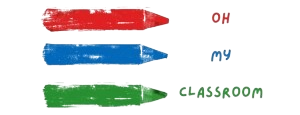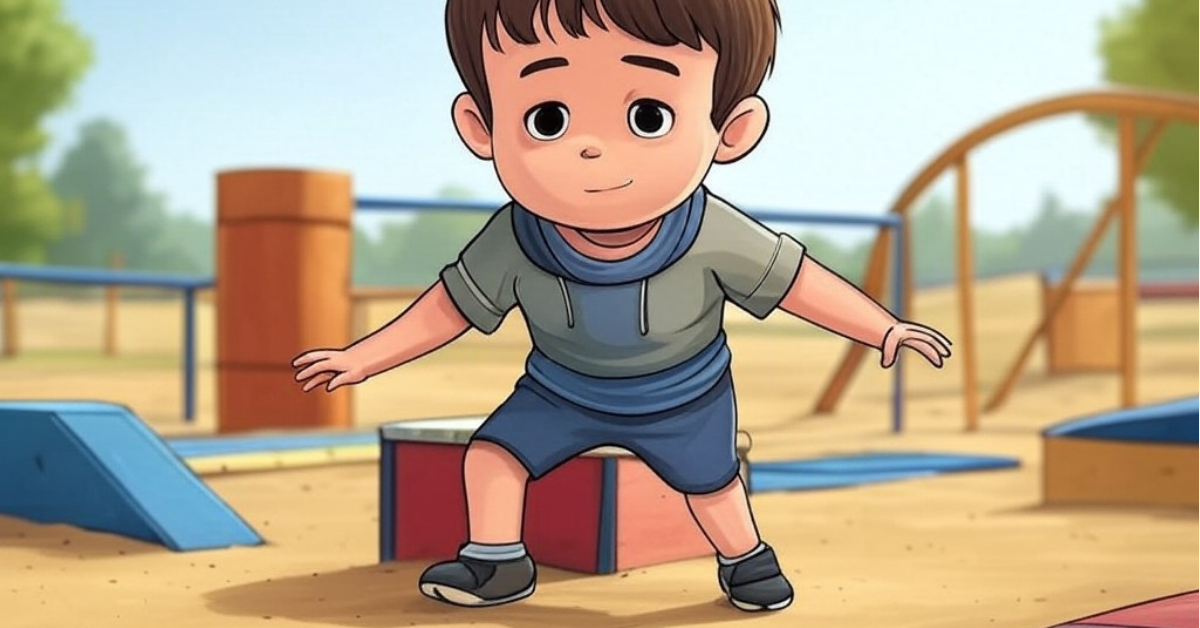Are you ready to take math learning beyond the confines of the classroom?
Get ready to step outside and engage in fun outdoor math games that will make learning numbers, operations, and problem-solving an interactive and enjoyable experience.
These games offer a refreshing break from traditional classroom methods, allowing students to explore mathematical concepts in a hands-on and dynamic way.
Whether you’re a teacher looking to spice up your lessons or a parent seeking engaging activities for your children, these outdoor math games are sure to captivate learners of all ages while fostering a deeper understanding and appreciation for mathematics.
So, put on your thinking caps, lace up your shoes, and let’s embark on an adventure of mathematical discovery in the great outdoors!
“Math Scavenger Hunt”:

Embark on an exciting math-filled adventure with a scavenger hunt that combines problem-solving skills and outdoor exploration. Create a list of math-related items or clues that participants must find and solve. For example, you could hide objects with numbers or mathematical symbols in various locations around the outdoor area. Participants can use their problem-solving abilities to decipher clues, calculate distances, and apply mathematical concepts to uncover hidden treasures. This activity not only reinforces math skills but also encourages teamwork, critical thinking, and active engagement with the environment.
“Fraction Frisbee Toss”:

Combine physical activity and fraction learning with a lively game of “Fraction Frisbee Toss.” Set up different fraction targets on the ground using hula hoops, colored markers, or any other visible markers. Assign each target a specific fraction value. Participants take turns throwing a frisbee and aim to land it within the designated fraction target. After each throw, players discuss and calculate the fraction of successful landings. This game helps reinforce understanding of fractions, encourages estimation skills, and enhances hand-eye coordination in an enjoyable outdoor setting.
Related: Free Lesson Plan Ideas for Preschool (Printable PDFs)
“Math Relay Race”:

Turn math into a thrilling relay race where teams compete against each other to solve mathematical challenges. Divide participants into teams and set up multiple stations with different math problems at each one. The teams race from one station to another, solving the problems and collecting points along the way. The challenges can range from basic arithmetic to more complex equations, catering to different skill levels. This fast-paced game promotes quick thinking, collaboration, and healthy competition while reinforcing math skills in a dynamic outdoor environment.
Related: 20 Creative Olympic Games Activities for Students
“Shape Scavenger”:
Take geometry outside with a “Shape Scavenger” activity. Give participants a list of various shapes, such as squares, circles, triangles, or rectangles, and challenge them to find real-world examples of each shape in the outdoor surroundings. Participants can search for objects like signs, leaves, rocks, or playground equipment that match the specified shapes. Encourage them to describe and discuss the properties of each shape they find, promoting observational skills and reinforcing geometric concepts. This hands-on activity allows learners to connect mathematical concepts to their everyday environment.
Source: mathgeekmama.com
“Measurement Olympics”:
Transform measurement practice into an exciting outdoor event with a “Measurement Olympics.” Set up different measurement stations around the outdoor area, such as long jump, javelin throw, or shot put, and assign each station a specific measurement skill, such as distance, weight, or height. Participants take turns participating in each event, measuring and recording their results using appropriate units. They can compare their measurements, analyze data, and discuss the concepts of precision and accuracy. This game not only reinforces measurement skills but also promotes physical fitness and friendly competition.
Source: thekindergartensmorgasboardstore.com
“Math Nature Walk”:
Combine the beauty of nature with mathematical exploration in a “Math Nature Walk.” Take a group of learners on a guided walk through a park or nature reserve. Along the way, encourage them to observe and document mathematical elements they encounter, such as counting the petals on a flower, measuring the height of a tree, estimating the length of a path, or identifying geometric shapes in natural formations. This activity promotes observation skills, measurement, and mathematical thinking while fostering a connection with the natural world.
Source: mothernatured.com
“Math Olympics Relay”:
Organize a Math Olympics Relay where teams compete in a series of math-based challenges. Set up stations with different math tasks that require teamwork, problem-solving, and quick thinking. For example, participants might solve math puzzles, complete number sequences, or calculate sums and products. Each team member takes turns racing to a station, solving the problem, and passing the baton to the next team member. This game builds mathematical fluency, enhances strategic thinking, and adds an element of excitement to outdoor learning.
Source: fun365.orientaltrading.com
“Number Line Hopscotch”:
Reinforce number sense and basic arithmetic skills with a creative twist on the classic hopscotch game. Draw a number line on the ground using chalk or tape, and assign each square a specific number. Participants take turns hopping along the number line, either adding or subtracting the numbers they land on. For instance, if they start at 10 and hop forward two squares, they would add 2 to 10, landing on 12. This game enhances mental math abilities, number recognition, and physical coordination while enjoying the outdoors.
Source: dreme.stanford.edu
“Math Art Gallery”:
Turn mathematical concepts into art by organizing a “Math Art Gallery” outdoors. Provide participants with various art supplies and materials, such as paint, brushes, construction paper, or natural objects like leaves and stones. Assign each participant or group a specific mathematical concept, such as symmetry, patterns, or geometric shapes, and challenge them to create artwork that reflects the assigned concept. Once completed, display the artwork in an outdoor gallery and encourage participants to discuss the mathematical elements in each piece. This activity combines artistic expression with mathematical visualization and promotes creativity.
Source: astemfulmind.com
“Math Relay Obstacle Course”:
Combine math skills and physical challenges in a thrilling “Math Relay Obstacle Course.” Set up an obstacle course with different stations, each representing a math task or problem. For example, participants might solve equations, identify geometric shapes, or answer math riddles before moving on to the next station. The team that completes the course in the fastest time with the most accurate answers wins. This game enhances math fluency, problem-solving under pressure, and physical fitness while adding an element of fun and competition to outdoor learning.
Source: earlymathcounts.org
“Math Relay Water Balloon Toss”:
Combine math and water fun with a “Math Relay Water Balloon Toss.” Divide participants into teams and set up a relay course. At each station, teams must solve a math problem before they can proceed. Once the problem is solved, they toss a water balloon to the next teammate. The team that completes the relay course with the fewest dropped water balloons wins. This game encourages quick thinking, math fluency, and coordination while providing a refreshing way to enjoy the outdoors.
Source: iknowit.com
“Geometry Scavenger Hunt”:
Turn geometry into an adventure with a “Geometry Scavenger Hunt.” Create a list of geometric shapes and properties, such as triangles, circles, parallel lines, or right angles. Participants explore the outdoor area to find objects that match each description on the list. For example, they might find a triangular roof, a circular flower, or parallel fence posts. This activity promotes geometry skills, observation, and critical thinking while connecting mathematical concepts to the real world.
Source: teachingexpertise.com
“Math Simon Says”:
Put a mathematical twist on the classic game of Simon Says. Designate one person as the “Math Simon” who gives commands related to math operations, shapes, or numbers. For example, they might say, “Simon says, touch your head if the answer to 3 + 5 is 8.” Participants must listen carefully and perform the action if “Simon says.” If they perform the action without “Simon says,” they are out. This game reinforces math skills, and listening comprehension, and enhances physical movement in an outdoor setting.
Source: familymath.stanford.edu
“Estimation Jar”:
Set up an “Estimation Jar” activity where participants practice their estimation skills. Fill a transparent jar with a specific quantity of objects, such as marbles, buttons, or shells. Participants examine the jar and make an estimation of the number of items inside. Each person writes down their estimate, and then the jar is opened and counted. The participant with the closest estimate wins. This game promotes estimation abilities, number sense, and critical thinking while enjoying the outdoor environment.
Source: mamapapabubba.com
“Math Pictionary”:
Combine art and math in an outdoor game of “Math Pictionary.” Divide participants into pairs or small groups. Each group is given a math concept, such as multiplication, fractions, or geometry. Using chalk or markers, they take turns drawing representations of that concept on the ground or a large piece of paper. The other groups then try to guess the math concept being illustrated. This game encourages creativity, mathematical visualization, and collaborative learning in an outdoor setting.
Source: thegamegal.com
“Math Relay Measurement Challenge”:
Create a “Math Relay Measurement Challenge” where participants compete in various measurement tasks. Set up different stations that require measuring length, weight, capacity, or time. For example, participants might measure the length of a jump, estimate the weight of an object, or time how long it takes to complete a specific activity. Each participant completes their measurement task and records the results before passing the baton to the next teammate. This game reinforces measurement skills, estimation, and teamwork while adding a competitive element to outdoor learning.
Source: mrsstrawberry.com
“Math Nature Photography”:
Combine math and photography in a “Math Nature Photography” activity. Provide participants with cameras or smartphones and encourage them to explore the outdoor environment, capturing images that showcase mathematical concepts. For instance, they might photograph patterns in nature, symmetry in leaves or flowers, or geometric shapes in architecture. Afterward, participants can share and discuss their photographs, identifying and describing the mathematical elements present in each image. This activity promotes observation skills, mathematical visualization, and artistic expression in a natural setting.
Source: natureexplore.org
“Math Olympics Obstacle Course”:
Organize a “Math Olympics Obstacle Course” where participants engage in math-related challenges while navigating through an obstacle course. Set up various obstacles that represent different math tasks or problems. Participants must solve each problem before moving on to the next obstacle. For example, they might solve equations, calculate areas, or identify number patterns. This game combines physical activity, problem-solving, and math skills while providing an exciting and energetic outdoor experience.
Source: earlymathcounts.org
“Math Bingo Scavenger Hunt”:
Create a unique twist on the traditional game of Bingo with a “Math Bingo Scavenger Hunt.” Prepare Bingo cards with math-related items or clues, such as shapes, numbers, or operations. Participants explore the outdoor area and search for objects that match the items on their Bingo cards. Once they find a matching object, they mark it off on their card. The first participant to complete a line or a full Bingo wins. This game reinforces math vocabulary, observation skills, and critical thinking while enjoying the thrill of a scavenger hunt.
Source: pbslearningmedia.org
“Math Chalk Obstacle Course”:
Use chalk to create a dynamic “Math Chalk Obstacle Course” on a paved outdoor surface. Draw various math challenges, such as equations, number sequences, or word problems, along with corresponding symbols or answers. Participants navigate through the course, solving each math challenge as they progress. For example, they might hop on the correct answer or perform a specific action based on the solution. This game combines physical movement, problem-solving, and math skills while embracing the colorful and interactive nature of chalk art.
Source: frugalfun4boys.com


